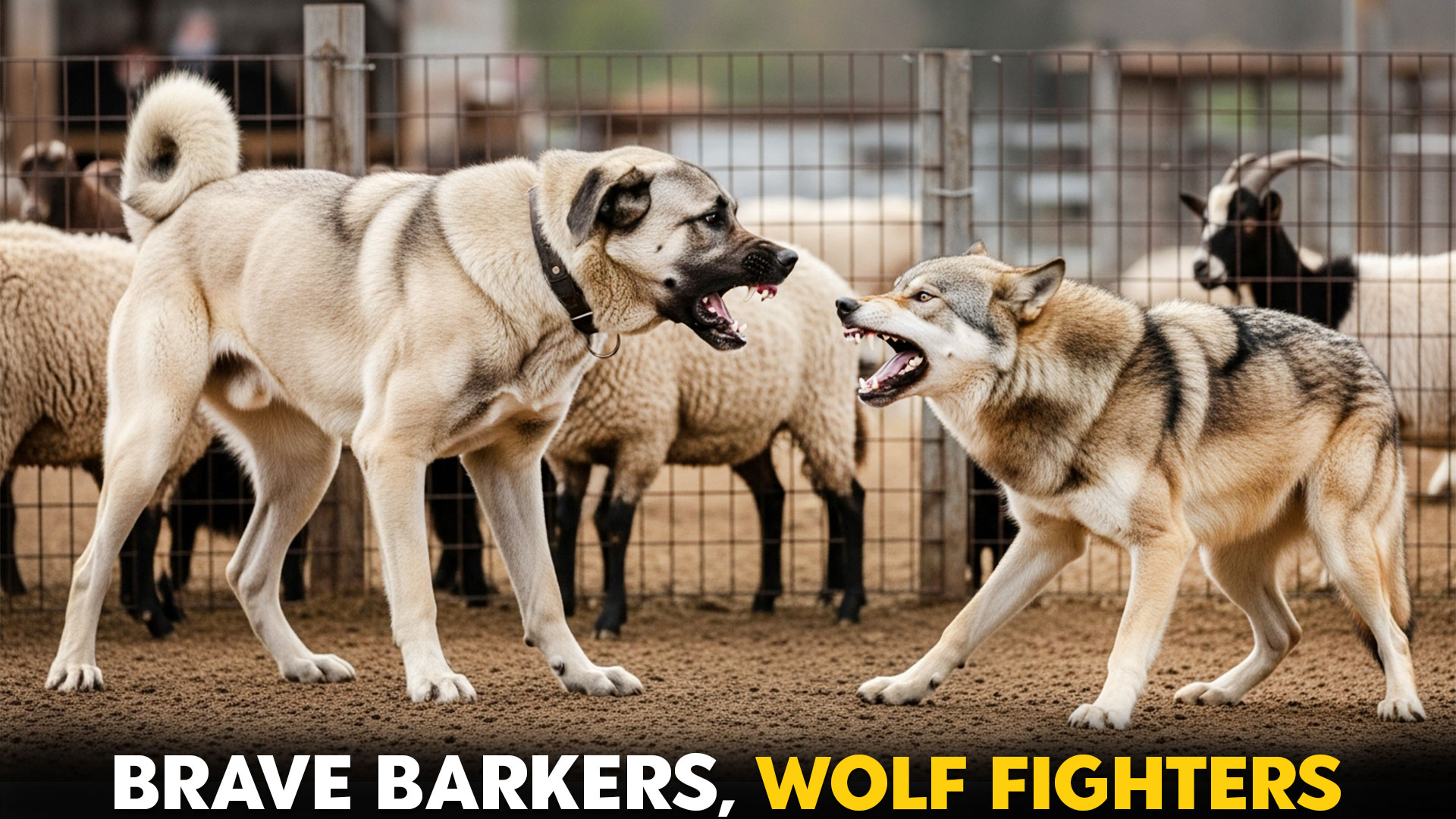When it comes to keeping wolves and other predators away from a farm, some dogs have been doing the job for thousands of years—and they’re still experts today. These aren’t the typical herding dogs that round up sheep; they’re the steadfast guardians who live right alongside the animals they protect.
The tradition runs deep—archaeological evidence from southern Greece reveals that farmers were using guardian dogs to protect their herds as far back as 9,000 years ago. That makes this partnership between humans and these loyal canines one of the oldest working relationships in history.
Their sheer size, commanding bark, and fearless nature create a natural barrier against wolves, coyotes, and even bears, while their loyalty ensures the animals in their care (and their human families) are never left vulnerable.
In this article, you’ll discover the remarkable livestock guardian dog breeds that have earned a worldwide reputation for keeping wolves far from farmyards.
Dog Breeds That Scare Away Wolves From Farms
1. Anatolian Shepherd Dog
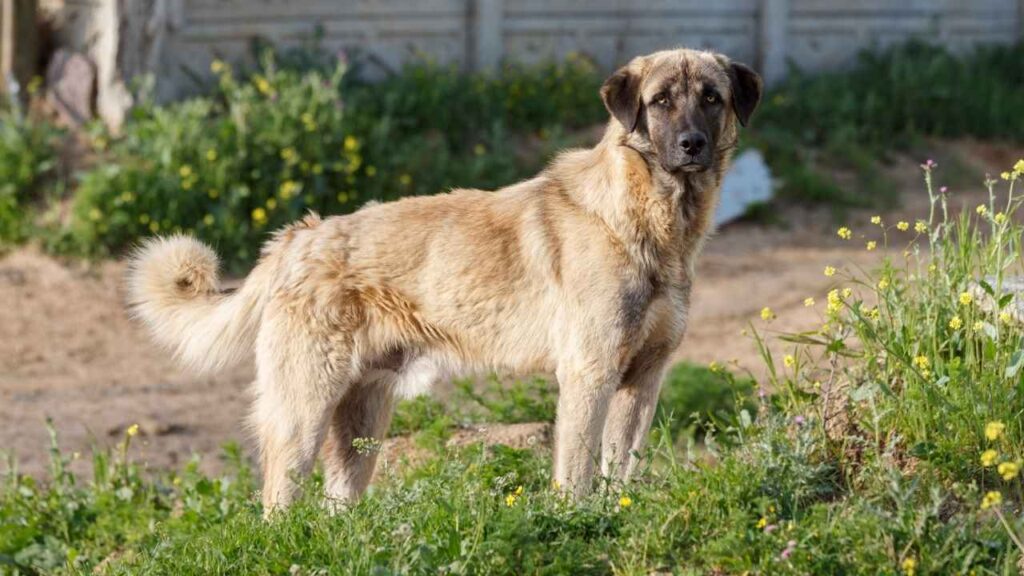
The Anatolian Shepherd is a powerful livestock guardian from Turkey’s rugged Anatolian plateau. This ancient breed was originally developed to protect sheep and goats from wolves and other predators. It is a serious working dog that can stay alert and independent without needing constant supervision.
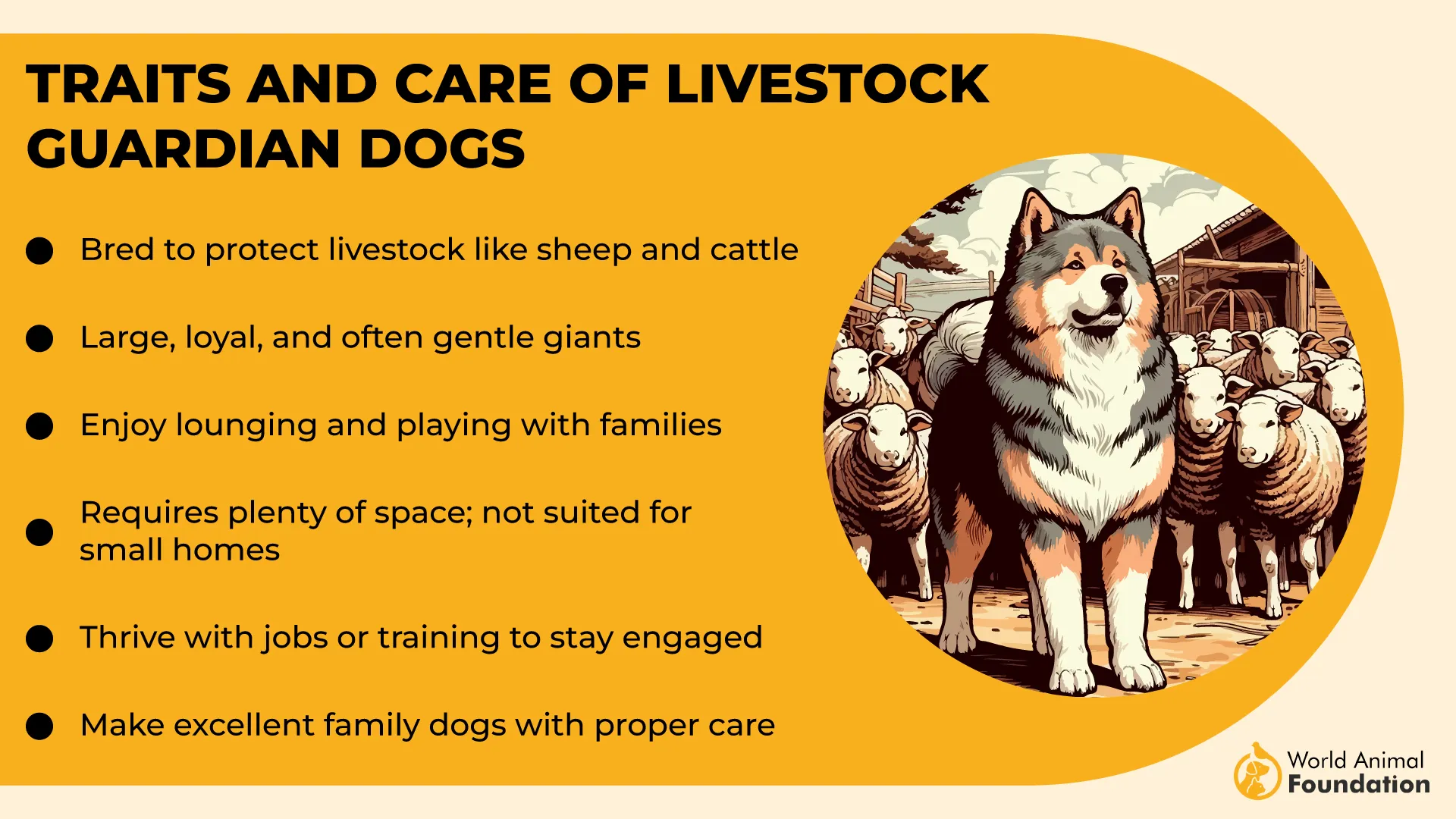
Personality and Traits
Calm, stoic, and fiercely protective of its flock or family
Independent and sometimes stubborn, making it a natural leader
Extremely sharp hearing, which helps it detect threats early
Care and Training
These dogs need early socialization to prevent aggression toward people or other pets. They are known for giving strangers the cold shoulder and can be wary of new faces. Training should start young and remain consistent.
If you don’t establish yourself as the leader, they may take charge. The Anatolian Shepherd is also a natural barker, especially when it senses danger, making it an excellent guard dog for farms.
2. Caucasian Shepherd Dog
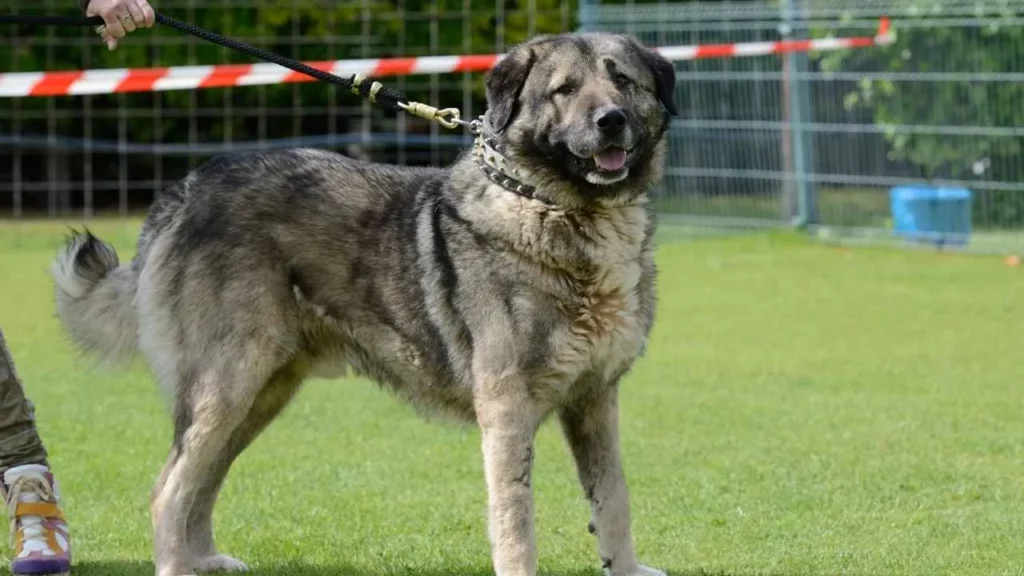
According to PetMD, the Caucasian Shepherd, also known as the Caucasian Ovcharka or Russian Bear Dog, comes from the rugged Caucasus Mountains of Eastern Europe.
For centuries, these mighty dogs have protected sheep and property from predators like wolves, jackals, and even bears. Their thick double coat can be short or long and often appears in shades of brindle, grey, or white.
Personality and Traits
Fearless and powerful, with strong protective instincts
Loyal and deeply bonded to their family
Naturally independent and sometimes stubborn
Care and Training
This breed needs early socialization and consistent training to manage its strong-willed nature. Because of its independence, the Caucasian Shepherd is not ideal for first-time dog owners.
With proper guidance, however, it becomes a devoted protector and an unshakable presence in the home or on the farm.
3. Central Asian Shepherd Dog
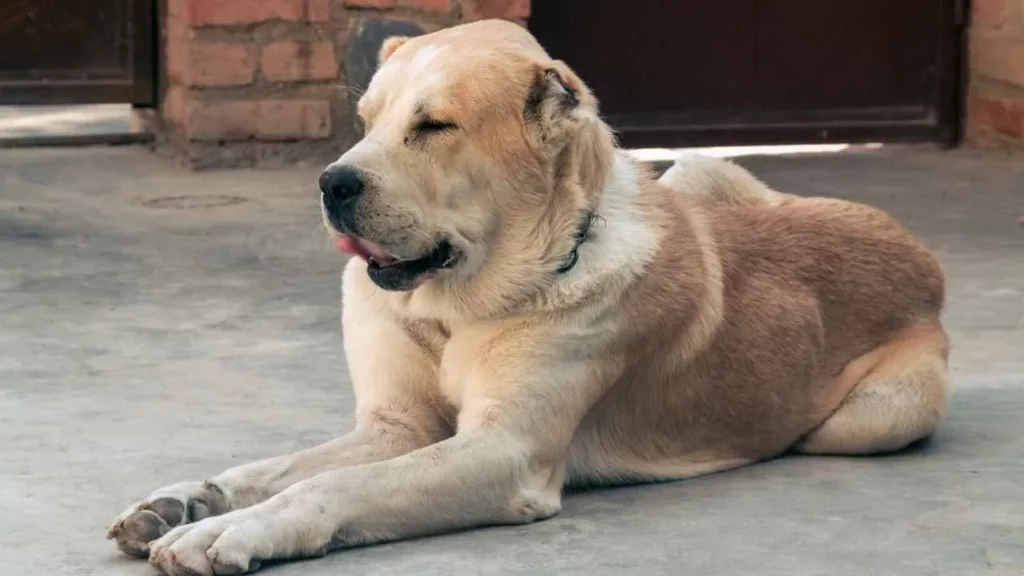
The Central Asian Shepherd is one of the oldest livestock guardian breeds, developed over thousands of years in Central Asia. Bred for both livestock and personal protection, these dogs are tough, resilient, and known for their ability to thrive in harsh conditions.
Personality and Traits
Fearless and quick to react when facing predators
Strong natural instinct for territory and protection
Forms deep bonds with family but remains wary of strangers
Care and Training
This breed needs strong fencing as it often patrols far to drive predators away. Central Asian Shepherds are very vocal, especially at night, and will bark to warn off threats. They require early socialization and daily interaction with their family.
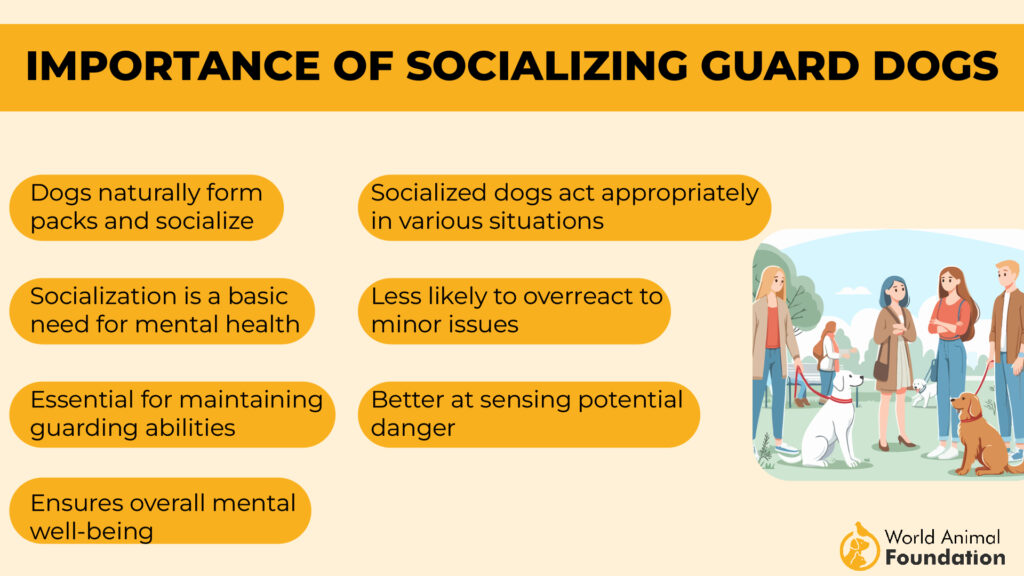
While excellent with children and animals, they are not ideal for homes with frequent visitors. Once bonded, they do not rehome easily and thrive best with owners who can provide a secure, stable environment.
4. Great Pyrenees
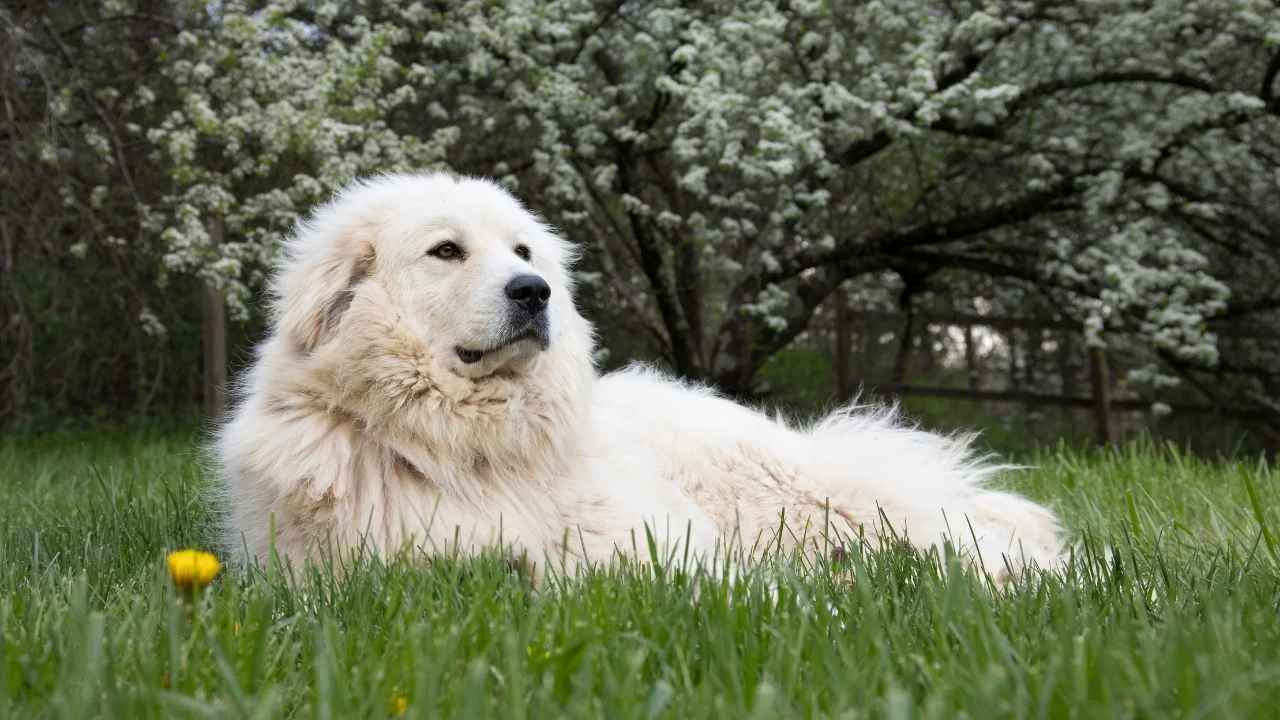
The Great Pyrenees, also known as the Pyrenean Mountain Dog, is one of the most famous breeds for livestock protection in the United States. Originally from the Pyrenees Mountains, these majestic dogs were first bred to protect sheep from wolves and bears.
Their thick white coat and calm, watchful nature quickly made them a favorite among farmers and families alike.
Personality and Traits
Gentle and affectionate with their family, especially children
Aloof with strangers but quick to bark at potential threats
Famous for their unique double dewclaws that help them navigate rough, snowy terrain
Care and Training
The Great Pyrenees is a natural protector and will often bark to warn predators before resorting to force. They need secure fencing since they tend to roam and expand their territory.
Early training and consistent guidance help curb stubbornness and ensure they remain reliable dogs for guarding livestock.
5. Maremma Sheepdog
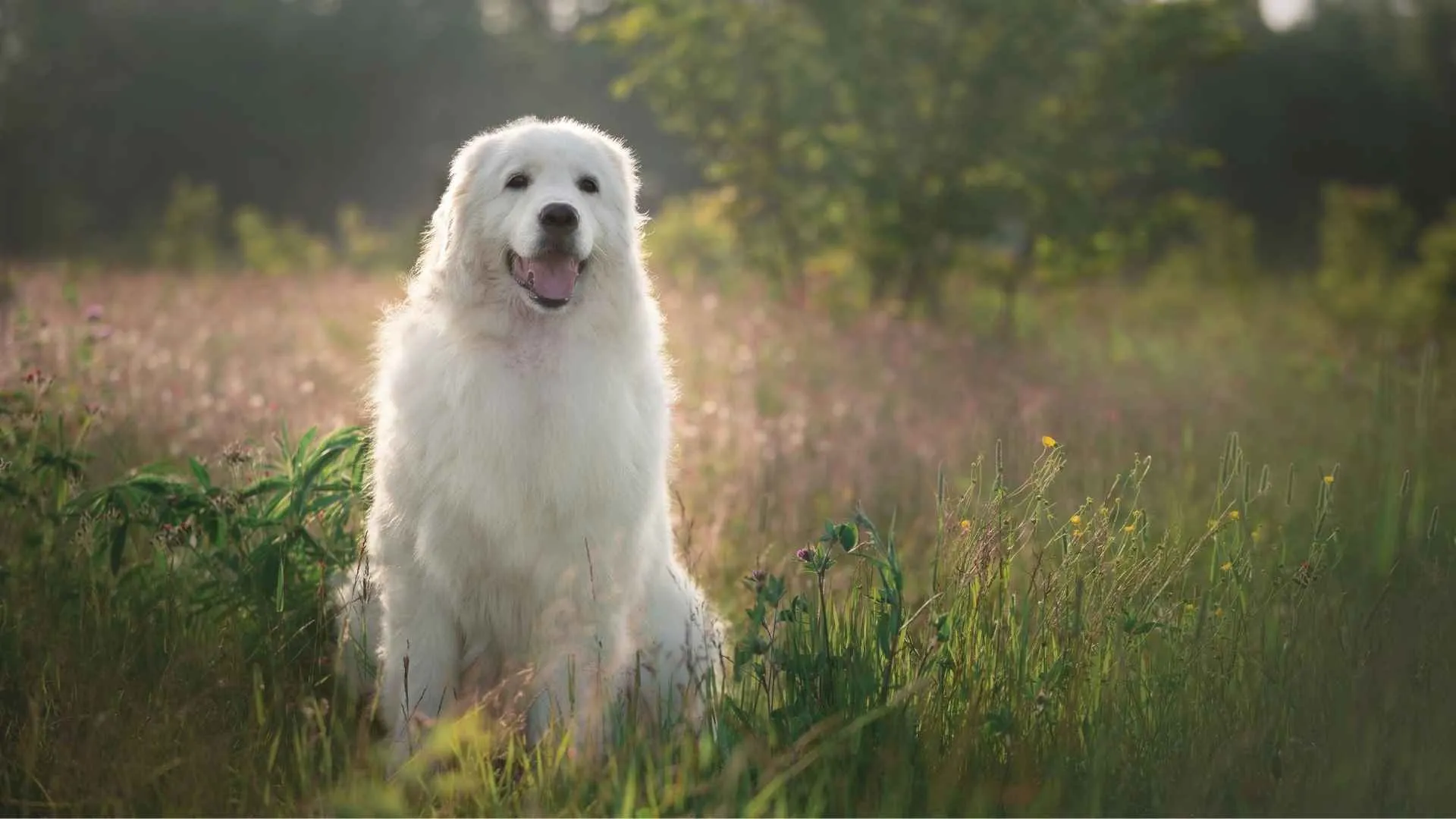
The Maremma Sheepdog, also known as the Maremmano-Abruzzese Sheepdog, is a devoted livestock guarding dog from rural Italy.
Bred to protect sheep in open pastures, this fluffy white dog is both strong and intelligent. It bonds closely with the herd and prefers an outdoor, working life where it can fulfill its natural guarding instincts.
Personality and Traits
Fiercely loyal to its family and herd, yet gentle with those it knows
Naturally suspicious of strangers unless the owner is present
Known for its deep, vocal bark that warns off intruders
Care and Training
The Maremma enjoys spending time with its owners but is happiest when tending to livestock. Secure fencing is still needed even though it is less prone to wandering than some other guardian breeds.
Regular grooming is essential for its dense, weather-resistant coat. Be prepared for plenty of barking—this dog follows its instincts to alert at the first sign of a threat and is not suited to a quiet, suburban life.
6. Komondor
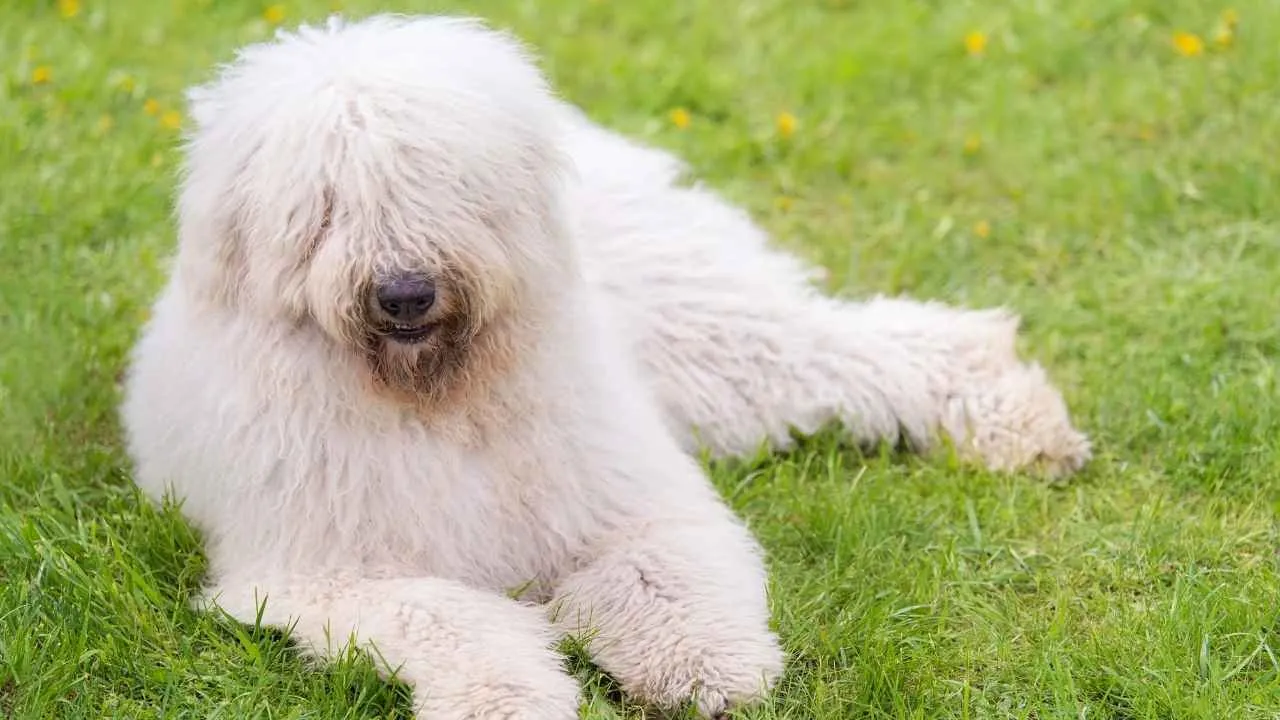
The Komondor, also known as the Hungarian Sheepdog, is instantly recognizable for its long, corded coat that looks like a mop or thick dreadlocks.
Bred specifically to guard flocks, its white coat helps it blend in with sheep while providing protection from harsh weather and predators, as noted by Purina. This breed is a true working dog with a powerful instinct to defend its herd.
Personality and Traits
Form strong bonds with its family or owner, and is naturally protective
Highly alert and quick to react to predators or human intruders
Dominant and independent, but does not respond well to harsh discipline
Care and Training
Komondors require early and consistent socialization to prevent overprotective behavior, even with family members. Their unique coat needs careful maintenance to help the cords form properly without matting.
While they thrive at protecting livestock, they can also live as family protectors if given proper training, regular interaction, and the right grooming care.
7. Tibetan Mastiff
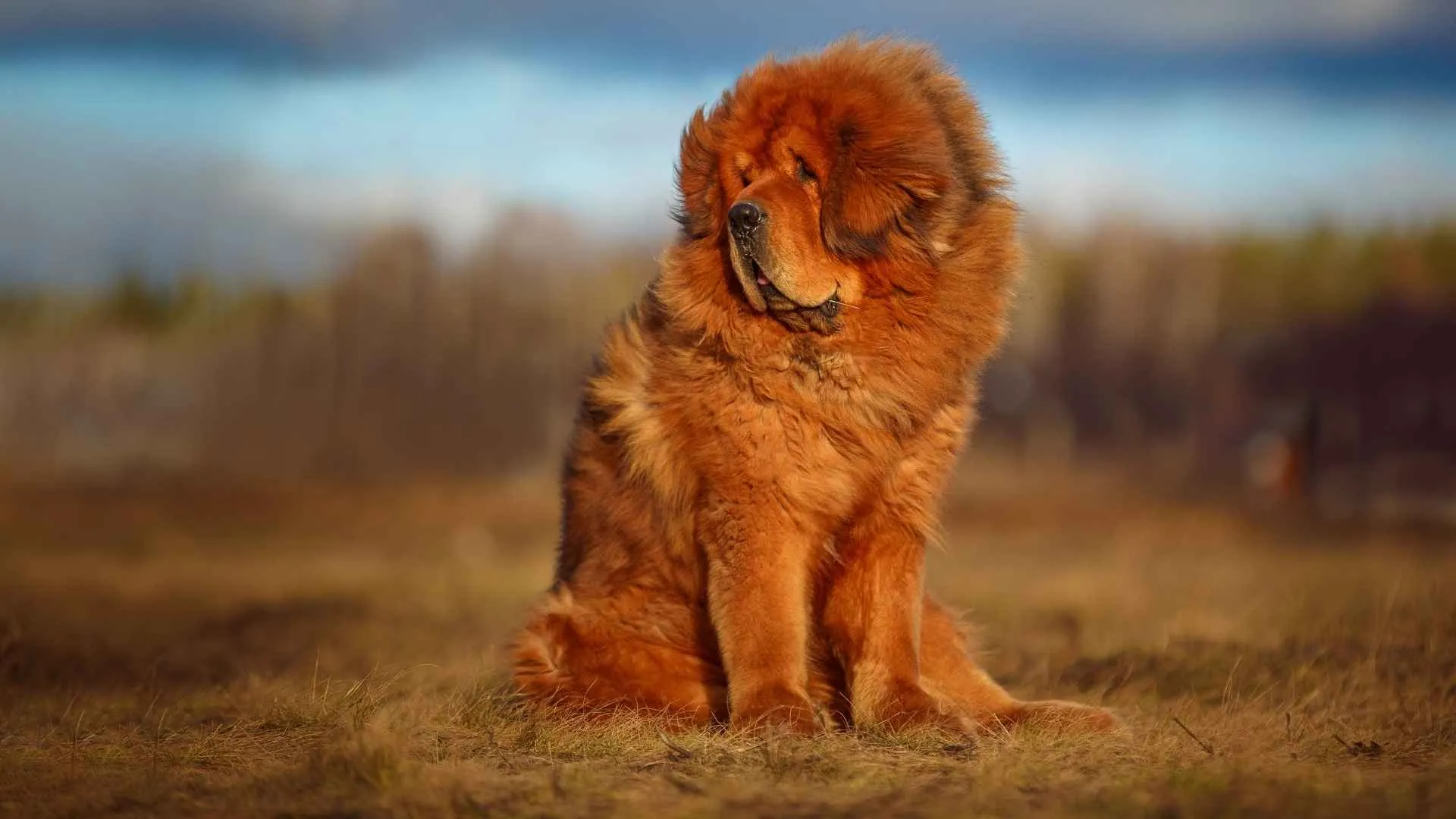
The Tibetan Mastiff is an ancient guardian breed from the Himalayan mountains. Bred for centuries to protect livestock and property, this dog is famous for its thick, flowing coat and powerful presence.
Hardy and majestic, this farm dog thrives in cold climates and is known for staying alert through the night to watch over its territory.
Personality and Traits
Extremely loyal and devoted to its family
Protective and fearless, known to bark loudly at night
Naturally independent and best suited to live with the opposite sex or as a single dog
Care and Training
Early training and socialization are essential to manage this breed’s strong guarding instincts and occasional stubbornness.
The Tibetan Mastiff needs secure fencing and precautions against digging, along with regular grooming for its dense coat. It is not suited for hot, humid climates but excels as a farm or property guardian in cooler regions.
8. Spanish Mastiff
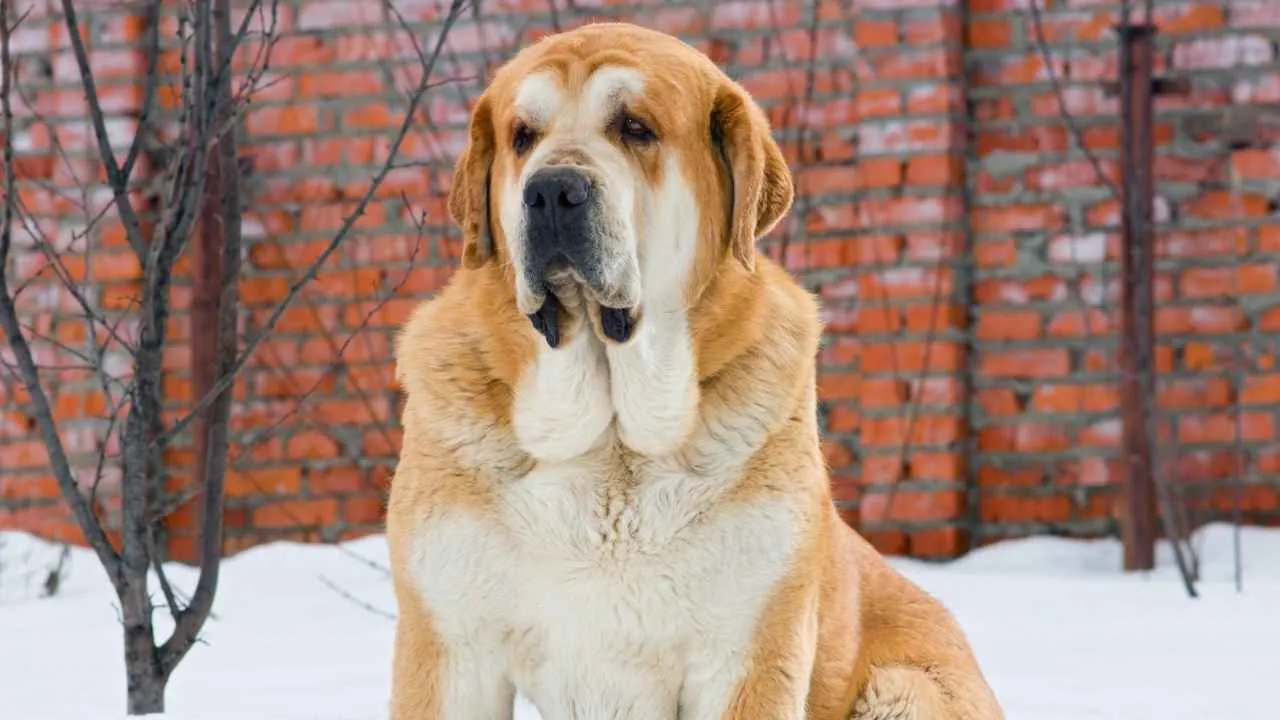
The Spanish Mastiff is a powerful livestock guardian dog breed that has protected flocks from wolves for centuries.
Originating in Spain, this dog once traveled with Merino sheep herders during seasonal migrations, defending them against predators along the way, as mentioned by AKC. Its deep, low bark can be heard from a great distance, warning off intruders before they get close.
Personality and Traits
Calm, noble, and confident with a strong sense of duty
Slow to react, but fearless and determined when facing danger
Less reactive toward humans but protective when needed
Care and Training
While not overly affectionate, the Spanish Mastiff still needs regular human interaction. Early socialization helps manage its natural stubbornness and independence.
Its short-to-medium coat is easy to maintain, and it thrives in open areas where it can patrol and protect livestock. This breed remains a reliable and steadfast guardian for farms and rural properties.
9. Kuvasz
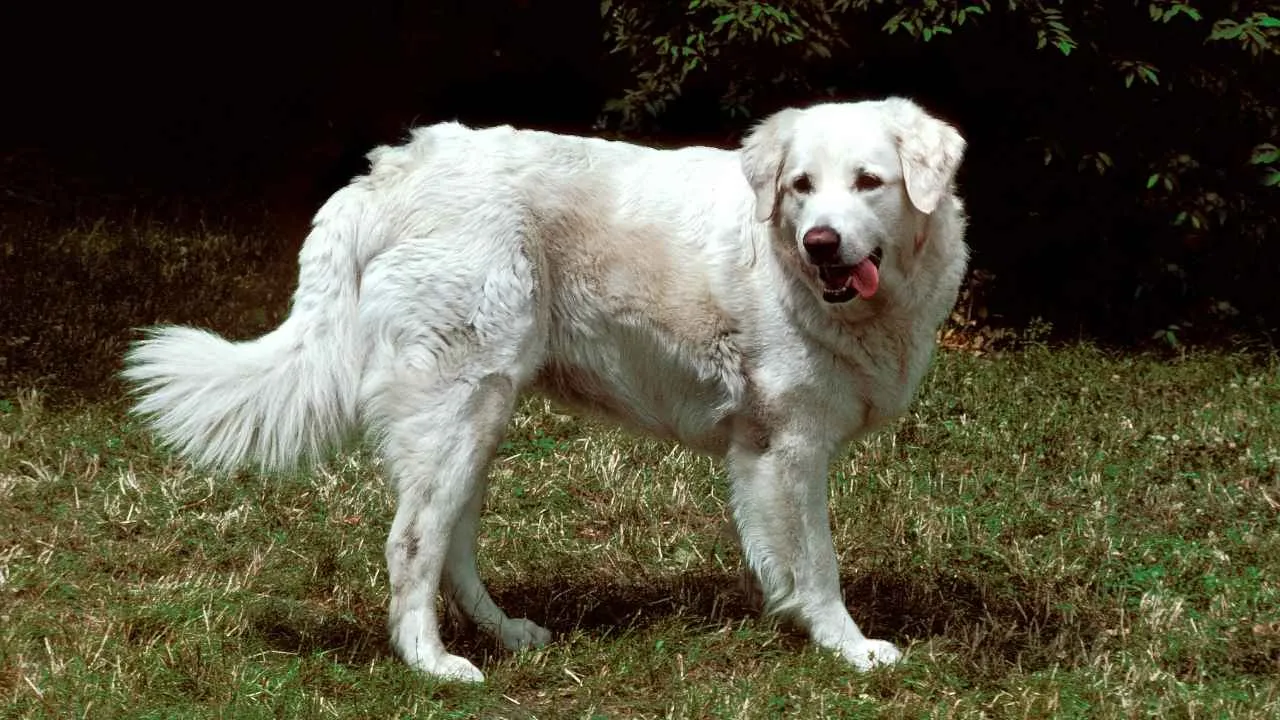
The Kuvasz is a striking white livestock guardian from Hungary with a long history of protecting farms and families. Originally used as a royal guard dog, this breed is both courageous and affectionate. Loyal to a fault, the Kuvasz often bonds so deeply with its family that it may struggle to adjust if rehomed.
Personality and Traits
Fiercely loyal and protective of its family and territory
Affectionate and soft-tempered, yet naturally wary of strangers
Independent and sometimes stubborn, making early training important
Care and Training
The Kuvasz needs strong fencing and plenty of socialization to manage its strong guardian instincts. Because of its protective nature, it can overreact to rough play and is not the best playmate for young children.
Regular grooming is essential for its dense white coat. With consistent training and daily interaction, this breed makes a devoted farm guardian and faithful companion.
Conclusion
For livestock farmers, choosing the right guardian can greatly reduce the risk of losing cattle, chickens, or other animals to prey such as wolves or even lions. These working dogs are among the best breeds for protecting wide stretches of land.
When trained from an early age, they learn to stay calm yet aggressive when a real threat appears. Unlike stray dogs or other dogs that might simply bark and wander, these guardians know how to hunt down danger and hold their ground.
When these dogs live close to the herd, they form strong bonds not just with the animals but with the family as well. They can work alongside more dogs in a pack and handle challenges that would be too much for any single animal.
Generally, these ancient guardians are proof that the right dog can do far more than defend; they can bring lasting peace of mind to any farm.


